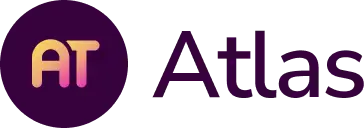By Marie-Theres Whitehead International School Ho Chi Minh City
You've probably heard it too. One of the most persistent buzzwords in curriculum development: Concept-Based Curriculum. What is it exactly and why is it such a buzzword?
The idea for Concept-Based Curriculum rose when H. Lynn Erickson (and later Lois Lanning) recognized the necessity to change mainstream instruction — simply learning facts for the purpose of regurgitating them in assessment situations.
The question that they asked was very clear: How can we get students to make connections, to think on a higher level? The idea of the Concept-Based Curriculum was born. And implementing it in the classroom is quite easy. Instead of focusing around facts and topics only, we now attach these to concepts that might be used in a variety of contexts / subjects.

But what are concepts? How are they different from topics?
Concepts are abstract, mental constructs that are transferable, universal and timeless. That sounds quite complicated, doesn’t it? But, let me give you my way of looking at it. I think of a bigger idea and to determine if it is a concept, I try to move this idea many years back (Stone Ages for example): does it still exist? Then I try to move it to another context, does it still make sense? And lastly, I move it to a different country.
Now, is it still good? I’d like you to think about the term ‘family’. Concept or topic? Absolutely right. It could be both, depending on how you would like to use it. As a concept, you might want to apply it in the social term for mother - father - children; however you could also go towards the linguistic context and talk about a ‘language family’; In the Oxford Dictionaries, you will find the definition of ‘many things related’.
Now that this is clear, how would we create a curriculum around concepts? After all, we all teach something different. Well, easy enough, there are macro concepts (that express the breadth) and micro concepts (that give us the depth in our subjects).
And if we put two or more of these concepts into a relationship to each other, using a strong verb, we already have our Enduring Understanding / Statement of Inquiry.Asking questions - the path to understanding
Now that we have made up our own Enduring Understandings, using concepts for our subjects and connecting them, we have to get the students to actually get there. And for this, we need to ask questions, also called “Essential Questions”. How are they different from regular questions? Actually, they aren’t all that different.
We classify them in three types:
- Factual: asking about facts, something that can be checked, that is right or wrong.
- Conceptual: asking about a concept, something that requires higher order thinking, not only recalling and regurgitating.
- Debatable / provocative: asking questions that get us perspectives, make us agree to disagree, are neither right nor wrong. These are the questions that intrigue us and keep a conversation going.
We ask all these questions every day. However, what makes them essential in the Concept-Based Curriculum is that they are leading us to the Enduring Understanding. Clever, isn’t it?

What about knowledge and skills?
For me, whenever I heard Concept-Based Curriculum, that was the question I asked myself. Can I then not teach vocabulary anymore, since it’s not a concept? What about the pronunciation of French words? And the grammar in German? Intriguing!
But I understood quickly when I got more involved in Concept-Based Curriculum design that knowledge and skills are actually the base of any unit, even in CBC. We can’t understand concepts and conceptual relationships if we don’t have the knowledge and the skills to build it on.
Once I understood how the unit design for Concept-Based Curriculum worked, I took it one step further. I involved my students in creating Enduring Understandings for the units we were studying. It was one of the most powerful moments when students clearly remembered at the end of the year, what connections they had made at the beginning.
What other proof do we need to know that something is working? And seeing students engaged and intrigued to find the right connections is just the cherry on top of the cake. Now up to you to go try it out!
[box] FariaPD supports teachers and leaders around the world with hands-on, active and creative professional development experiences. Join one of our online or in-person professional development events, each designed to support the unique goals of your school or district. FariaPD is part of Faria Education Group, an international education company that provides services and systems for schools around the world including ManageBac, a curriculum-first learning platform, OpenApply, an online admissions service, and Atlas, a tailored curriculum management solution for schools. [/box]
Contributing Author:

